Collection: Weber Medical
Discover The Power of Light
Shaping the future of laser technology since 2015
-
Global Pioneer
German medical company specialized in Medical Laser Therapy & trusted by practitioners worldwide
-
Based on Evidence & Scientific Research
Involved in decades of research. Product studied and tested. Contact us to request for studies.
-
Forward Thinking solution
Connected to large international network of physicians & expert community to keep innovate.
-
EndoLight® Band
Vendor:Weber MedicalRegular price RM9,299.00 MYRRegular priceUnit price / per
Key Facts
-
83%
Feel more relaxed
-
75%
Slept better
-
92%
Had more energy & focus
*Based on customer feedback
True Laser Technology
For effective SYSTEMIC level photobiomodulation.
Beyond concept and general scientific theory, Laser watch itself has been studied for effectivess.
With benefits from various light colors, it is more than infrared and red light therapy.
Relax | Recharge | Recover
EndoLight is our latest breakthrough from years of research and experience in laser therapy

LLLT Benefits
Low-level laser therapy works on multiple levels within the body:
Pain relief through the inhibition of pain signals and stabilization of cell membranes
Reduction of inflammation by activating immune cells and lowering inflammatory markers
Accelerated wound healing via improved blood circulation, angiogenesis, and increased ATP production
Enhanced cellular energy supply by optimizing mitochondrial function
Improved microcirculation and oxygen delivery
Image: Dr. Hans Michael Weber
Founder of Weber Medical GmbH & International Society for Medical Laser Application
Low-Level Laser Therapy
Gentle, Effective & Well Tolerated
Low-level laser therapy (LLLT) employs low-intensity laser light to enhance the body’s innate regenerative and regulatory mechanisms. Unlike ablative surgical lasers, LLLT preserves cellular integrity and promotes healing.
At the cellular level, specific wavelengths of light stimulate increased production of adenosine triphosphate (ATP), the key energy molecule that accelerates tissue repair.
Additionally, laser light stimulates the production of stem cells and growth factors and boosts the production of nitric oxide (NO) and reactive oxygen species (ROS). Patients benefit in many ways, including improved blood circulation, faster wound healing, effective pain relief, and reduced inflammation.
Backed by scientific research, LLLT is minimally to non-invasive, with a strong safety profile and virtually no side-effects making it an excellent adjunct in various clinical settings.

What role do mitochondria play?
The Key to Cell Health and Regeneration: Laser therapy can stimulate mitochondrial activity, boost ATP production, and support faster regeneration of damaged cells, offering a promising approach for innovative treatments.
FAQ
Please always read the Product Instruction Before 1st use
If you have more questions, just reach out to us and we will find the answer for you. We believe using the product in a right way will maximize the benefit from a good product.
Which intensity should I choose?
It depends on how sensitive you are to light. We suggest starting at 25% intensity and after two to three days, moving up to the next level. You don’t always need to go all the way to 100%. Listen to your body.
Especially for kids, it’s best to start at 25%.
Which wrist should I wear it?
We recommend it on your left wrist for best result.
Place the device around your left wrist and fasten the buckle. The EndoLight® should sit comfortably on your wrist, about one finger's breadth below the palm. The diodes rest on the arteries inside the wrist. If the display is upside down, the EndoLight® has been put on the wrong way. The display is located on the extension of the thumb.
I have to recharge my EndoLight® after just 2–3 sessions. Why does the battery drain so fast?
It’s not that the battery is weak, it’s that the laser diodes are so powerful they need more frequent recharging. We use the strongest battery currently available. We could’ve made the device last longer between charges, but that would’ve meant lowering the laser output and losing effectiveness, and that wasn’t an option for us. We chose to prioritize performance over the convenience of fewer charges.
Most other “comparable” products on the market use LEDs instead of lasers, with only about 5 mW per diode (compared to our 35 mW). Those devices have longer battery life but don’t reach nearly the same penetration depth into the tissue.
Can the EndoLight® specifically target illnesses?
Even though the EndoLight® uses the same lasers found in medical settings, it’s approved as a wellness device, not a medical one. It’s not designed to cure diseases but mainly to give your overall well-being a boost.
Can the light harm my body?
No, it can’t. You might feel more “activated” or alert, especially with the Recharge or Recover modes. If that happens, it’s best to use the EndoLight® during the day rather than right before bedtime. The increased blood flow might cause a tingling or warming sensation, which is totally normal and a sign your body is responding to the light.
Laser therapy has been studied for decades, with lots of scientific research backing its benefits. The EndoLight® emits light at levels that support your body, not harm it.
Of course, it goes without saying: don’t look directly into the diodes since laser light can damage your eyes. Thanks to the built-in contact sensor, the lasers only activate when the device is touching your skin.
I have very slim wrists. Can I still wear the EndoLight®?
Absolutely! Even kids can wear the EndoLight®. If the pre-installed band is too loose, just switch to the shorter band included in the package. Plus, there’s an adapter in the box you can use if any light leaks out from the sides.
Do I have to use dietary supplements with the EndoLight®?
Nope! They’re not a must, more like a nice extra to give your body some additional support.
Can I combine the laser watch with other biohacking methods?
Absolutely! The laser watch works great alongside other hacks like meditation, breathwork, strength training, or sleep optimization to boost your overall wellness.
Should I wear EndoLight® tightly?
NO. You shouldn't wear it too tight on your wrist and cause discomfort. It should be tight enough (so light in close contact on your skin) but not overly tight to allow good blood flow.
The EndoLight® should sit comfortably on your wrist, about one finger's breadth below the palm.
The EndoLight® must NOT be too tight so as not to hinder blood circulation (tight, but not constricting).
Warm sensation from EndoLight®
Due to the high-power output, it is normal that the EndoLight® generates heat (approx. 40 degrees Celsius or 104 degress Fahrenheit).
If the EndoLight® becomes uncomfortably hot while it is being used or charged, or if it produces unusual noises or smoke, immediately remove it from your wrist or unplug it from the socket.
If you experience pain, numbness, or a burning or tingling sensation while or after wearing the device, remove it immediately.
How many time should I wear it?
Wear your EndoLight® whenever you want it to support you in everyday life. We recommend one daily session of 30 minutes. Maximum sessions per day: 2.
At the beginning, start with low intensity (25 % - 50 %) and observe your reaction. You can then gradually increase the power from session to session depending on how you feel.
Cleaning & Storage of EndoLight®.
Store your EndoLight® in the provided storage case when not in use to prevent dust and debris getting inside the device.
Perspiration can develop during the treatment. We recommend to wipes the surfaces after use with the provided cleaning cloth. Alternatively, you can use an abrasion-resistant, lint-free cloth for
cleaning. You can use water or cleaning alcohol (such as isopropanol 70 %) to moisten the cloth. First spray this onto the cloth and not directly onto the device. Make sure that the cloth is only damp and not wet.
Never spray cleaner directly on the device. Damage due to the ingress of liquids or solvents will void
the manufacturer’s guarantee. Use of other cleaning products may damage your EndoLight®.
The EndoLight® should only be cleaned when it is turned off and not while it is charging.
CAUTION: Do not use cleaning products that contain ammonium chloride. These chemicals may cause cracking of the material.


